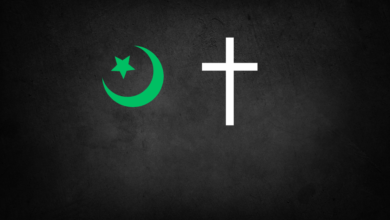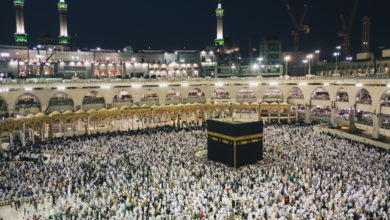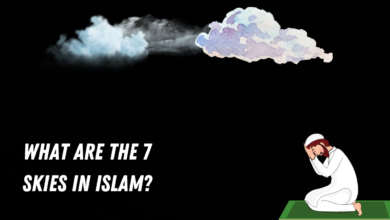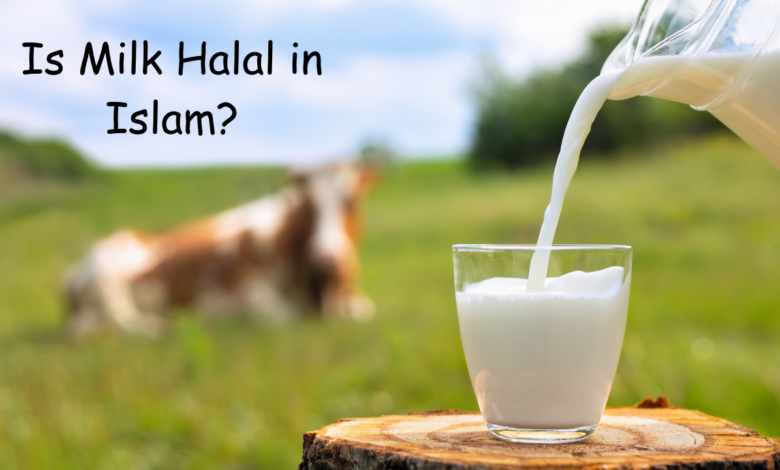
Is Milk Halal in Islam?
Yes, milk is generally considered halal (permissible) in Islam. It is a pure and natural substance, and it does not undergo any transformation or process that would make it haram (forbidden).
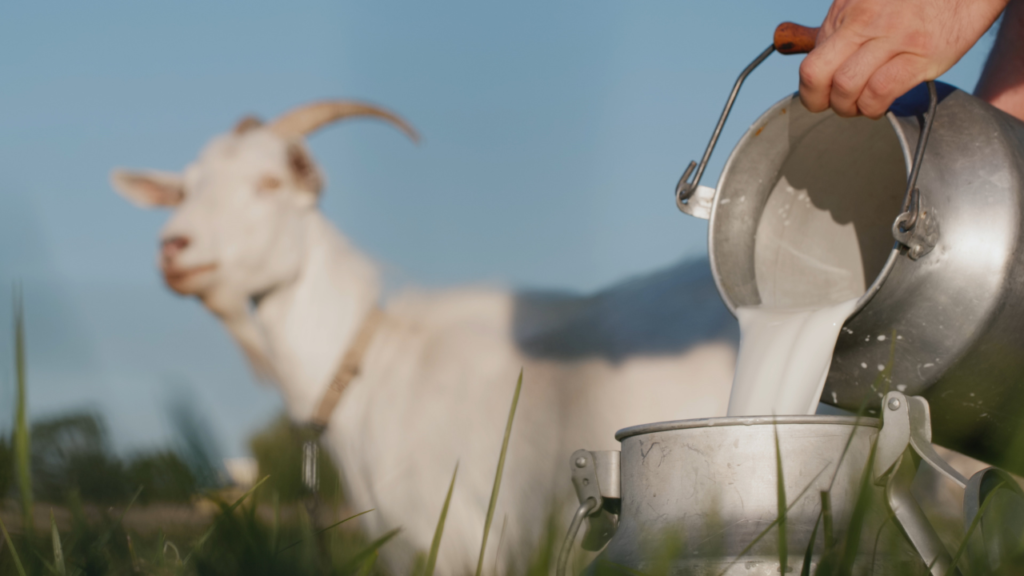
Introduction
Islamic dietary laws, often referred to as Halal, are a set of guidelines that dictate what is permissible for Muslims to consume. These rules are derived from the Quran and the Hadith, the sayings and actions of Prophet Muhammad (peace be upon him). While many people are familiar with the concept of Halal meat, there is often confusion about other common foods, such as milk. In this article, we will explore the status of milk in Islam and whether it is considered Halal.
The Basis of Halal in Islam
Before delving into the status of milk, it’s essential to understand the foundations of Halal in Islam. The term “Halal” means permissible or lawful, and it applies not only to food and drink but also to various aspects of daily life. In contrast, “Haram” refers to anything that is forbidden or prohibited.
The primary sources for determining what is Halal and Haram are:
- The Quran: The holy book of Islam, believed to be the literal word of God as revealed to the Prophet Muhammad (peace be upon him).
- The Hadith: The sayings, actions, and approvals of the Prophet Muhammad (peace be upon him), which provide practical guidance on various aspects of life.
Status of Milk in Islam
Milk is considered a Halal beverage in Islam, and it is generally consumed by Muslims worldwide without hesitation. The permissibility of milk in Islam is based on several factors:
- Quranic References: The Quran mentions milk in various verses, often in a positive light. For example, in Surah Al-Nahl (16:66), it is stated: “And indeed, for you in livestock is a lesson. We give you drink from what is in their bellies, and for you in them are numerous benefits, and of them you eat.” This verse highlights the benefits and permissibility of milk obtained from livestock.
- Prophetic Tradition: The Hadith also reinforces the Halal status of milk. The Prophet Muhammad (peace be upon him) is reported to have consumed milk and encouraged its consumption. His practice of drinking milk from goats and camels is documented in various Hadith.
- Natural Source: Milk is a natural and unprocessed product obtained from mammals, primarily cows, goats, sheep, and camels. As long as the animal itself is Halal (permissible for consumption), the milk it produces is also considered Halal.
- Absence of Prohibited Additives: To maintain the Halal status of milk, it should be free from any prohibited additives or contaminants. Any substances that are Haram, such as alcohol or pork derivatives, must not be mixed with the milk.
- Ethical Considerations: Islam also places importance on the ethical treatment of animals. Muslims are encouraged to treat animals with kindness and compassion. Therefore, the source of the milk should be an animal that has been raised and treated in accordance with Islamic principles.
Also Check
- Can Muslims drink alcohol?
- What should we do if we eat Haram food by mistake in Islam?
- Do you have to hide your period in Islam?
- Why did Allah Almighty expel Hazrat Adam and Hazrat Eve from Heaven?
- Can men wear silver in Islam?
Conclusion
In conclusion, milk is considered Halal in Islam, and there is no inherent prohibition against its consumption. The permissibility of milk is rooted in the Quranic references and Prophetic traditions, making it a staple in the diet of Muslims around the world. However, it is essential to ensure that the milk is sourced from animals that are themselves Halal and that it is free from any Haram additives or contaminants. As with all matters related to Halal dietary laws, Muslims are encouraged to be mindful of the sources of their food and to seek Halal-certified products when in doubt.
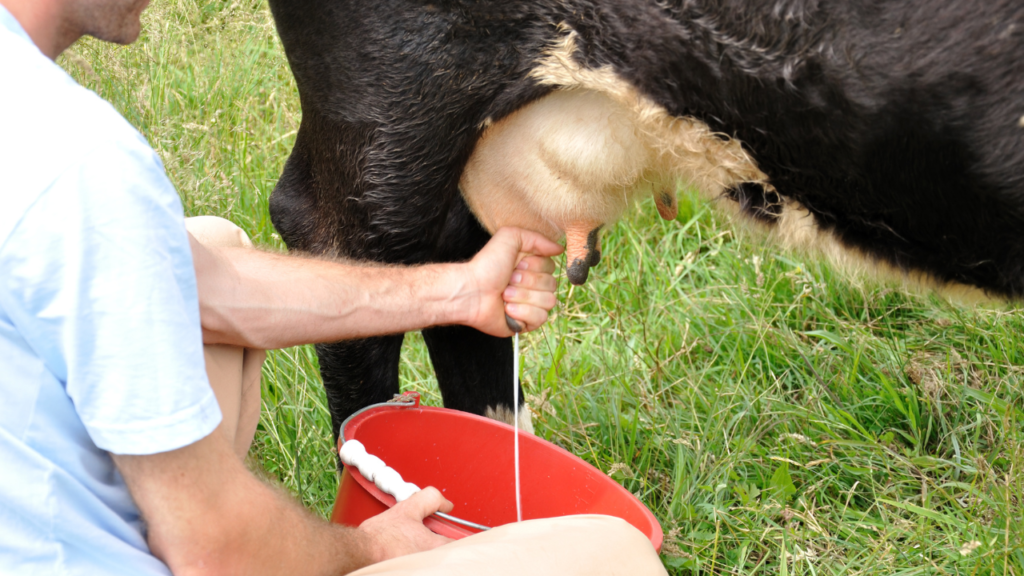
Is milk halal in Islam?
Is milk halal in Islam?
Yes, milk is generally considered halal (permissible) in Islam. It is a pure and natural substance, and it does not undergo any transformation or process that would make it haram (forbidden).
Are there any conditions or guidelines for consuming milk in Islam?
There are no specific conditions or guidelines for consuming pure milk in Islam. However, it is essential to ensure that the milk is not mixed with any haram (forbidden) substances and is obtained from animals that are slaughtered in accordance with Islamic dietary laws if it is not from a plant source.
Can Muslims consume flavored or sweetened milk products?
Flavored or sweetened milk products are generally permissible as long as the ingredients used to flavor or sweeten them are halal and do not contain any haram components. It’s essential to check the labels for any non-halal additives or ingredients.
Is it necessary to say a specific prayer (dua) before drinking milk in Islam?
There is no specific prayer or dua that must be recited before drinking milk in Islam. However, Muslims are encouraged to begin their meals and drinks with the name of Allah (saying “Bismillah” – In the name of Allah) as a general practice.
Can Muslims consume milk from non-Muslim countries or non-Muslim sources?
Muslims can consume milk from non-Muslim countries or sources as long as it meets the halal criteria, such as being free from haram contaminants or additives. It is advisable to verify the source and production methods to ensure it complies with Islamic dietary guidelines.
Is camel milk halal in Islam?
Camel milk is generally considered halal in Islam, provided it comes from a healthy and properly slaughtered camel. Like other forms of milk, it should not be mixed with any haram substances.
What about other dairy products like cheese and yogurt? Are they halal?
Cheese and yogurt can be halal if they are made from permissible ingredients and do not contain any haram additives or rennet. It is essential to check the labels and verify their halal status.
Can Muslims consume milk from animals that are not slaughtered according to Islamic methods?
Ideally, Muslims should ensure that milk comes from animals that are slaughtered in accordance with Islamic dietary laws. However, there is a difference of opinion among Islamic scholars on whether milk from animals that were not slaughtered Islamically is permissible. It is recommended to consult with a knowledgeable scholar for guidance in such cases.
Is there any specific etiquette for consuming milk in Islam?
There are no specific etiquettes for consuming milk, but Muslims are encouraged to be thankful for the blessings of food and drink by saying “Alhamdulillah” (Praise be to Allah) after finishing their meal or drink.


